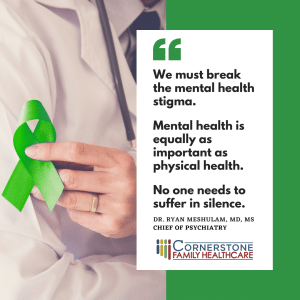Provider blog written by Alicia Pointer, DO.
What is ADHD?
ADHD stands for Attention Deficit/Hyperactivity Disorder. All kids have times when they have a lot of energy, have trouble listening, get distracted or misbehave. Kids with ADHD have frequent symptoms or behaviors that make it hard for them to function at home and school. ADHD is a chronic condition that affects the way children’s brains work. ADHD impacts the part of the brain that focuses on things that children need to pay attention to and not things they enjoy. Many kids with ADHD can focus on a movie, game or something that interests them. Sometimes these kids are called “bad kids” because people do not understand ADHD, but there are treatments that can help them be very successful.
What are the symptoms of ADHD?
Some children with ADHD mainly have problems with paying attention and some have mostly hyperactivity. Many children with ADHD will have both. The following are some symptoms and behaviors you might notice if your child has ADHD. Remember, children without ADHD may have some of these issues as well.
- Cannot sit still, always moving or squirming
- Shouts out answers or interrupts
- Seems to act first without thinking
- Disorganized, may frequently lose things
- Trouble following instructions especially multi-part instructions
- Unable to focus or pay attention
- Gets easily distracted
- Acts as if he/she is driven by a motor
How is ADHD diagnosed?
If you are worried your child may have ADHD, talk to your child’s doctor. There are many other issues that look like ADHD including anxiety, depression, sleep trouble, learning problems or stress at home or school. There is no test for ADHD. When you talk to your child’s doctor, she may ask questions about your child’s health, mood, behavior and performance at school. Since ADHD runs in families, she may ask about your family history. She may ask you and your child’s teachers to fill out forms. These forms can help diagnose ADHD and rule out other causes of your child’s behavior.
How is ADHD treated?
There are many ways to treat ADHD. You, your child and your child’s doctor can work together to determine the treatment that will be most helpful for your child. It is also important to make your child’s teacher part of your treatment team. If the teacher knows your child’s struggles and knows that you want to work on them together, she will be more likely to help. Some treatments are:
- Medication
- Therapy or counselling
- Behavior changes at home such as sticker charts or taking homework breaks
- School interventions such as longer time for tests, sitting near the front of the class or breaks to stand up and walk around
- Be creative. Every child with ADHD is different. With patience and some trial and error, you and your treatment team will find the best treatment for your child.



